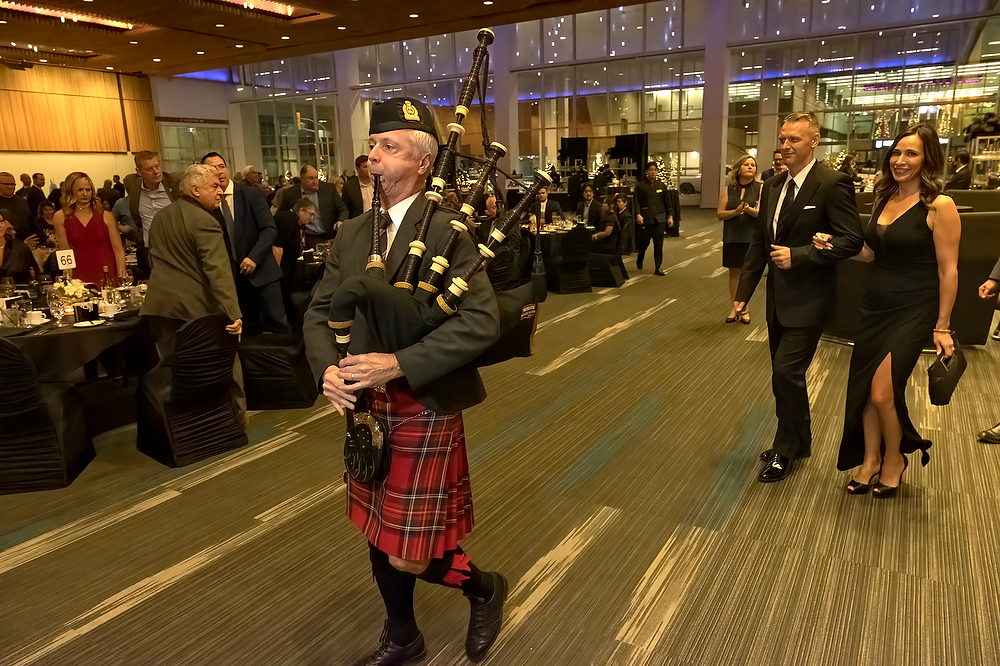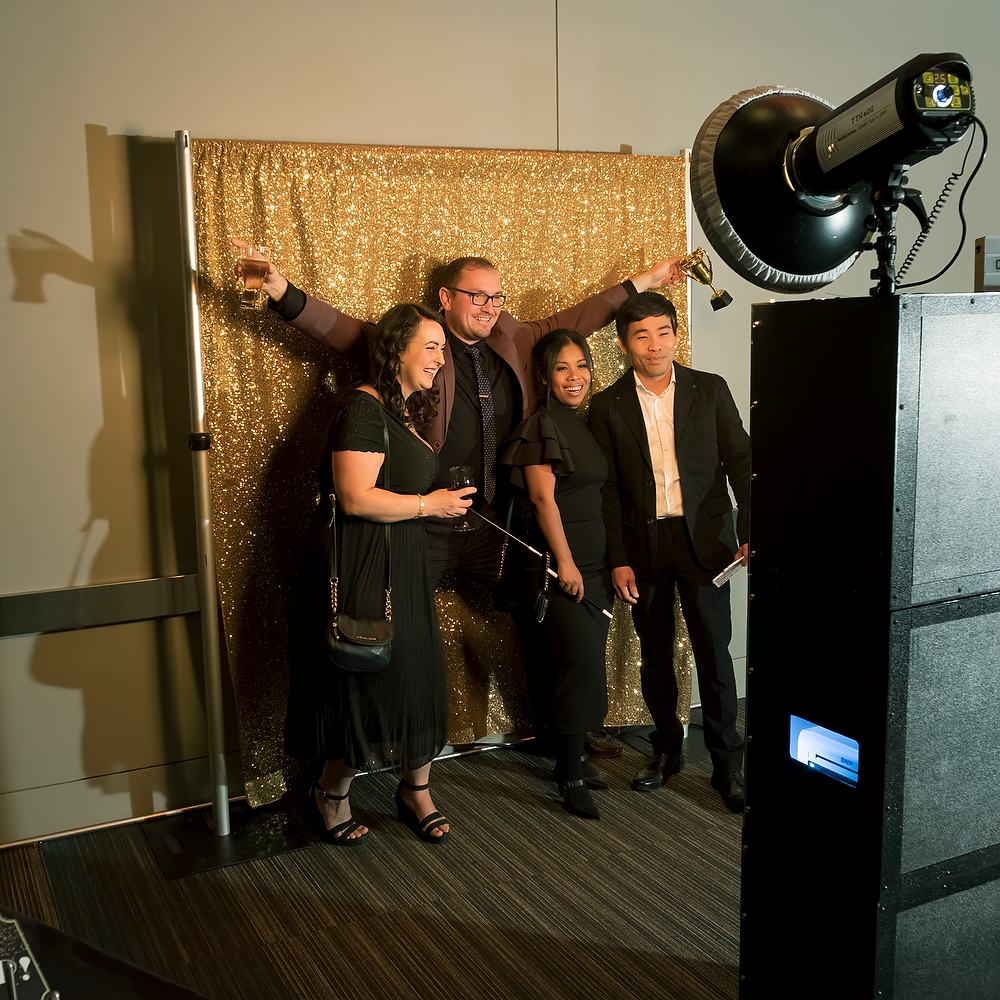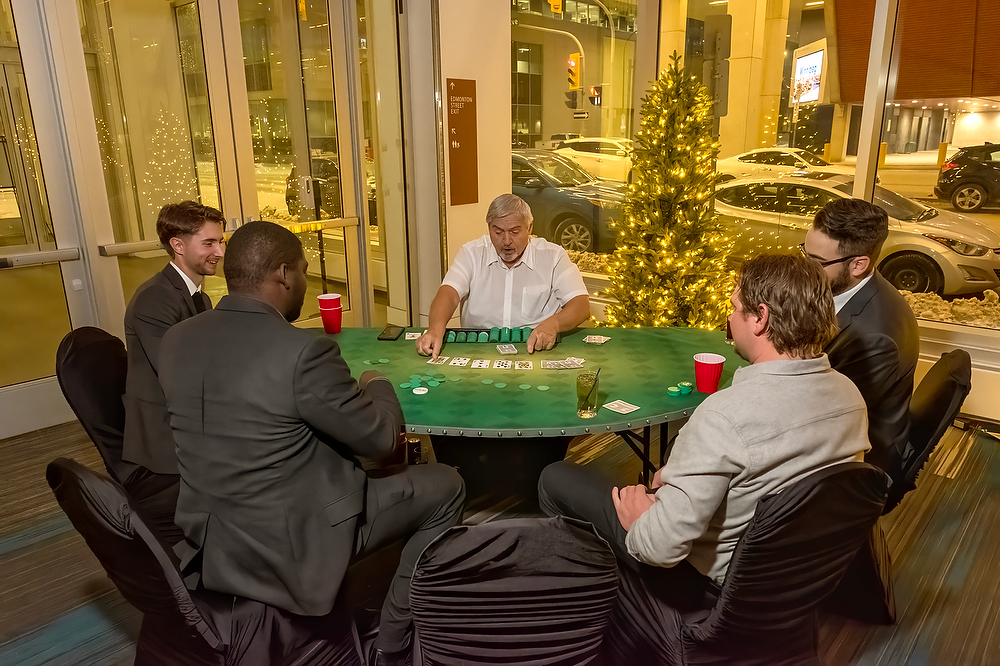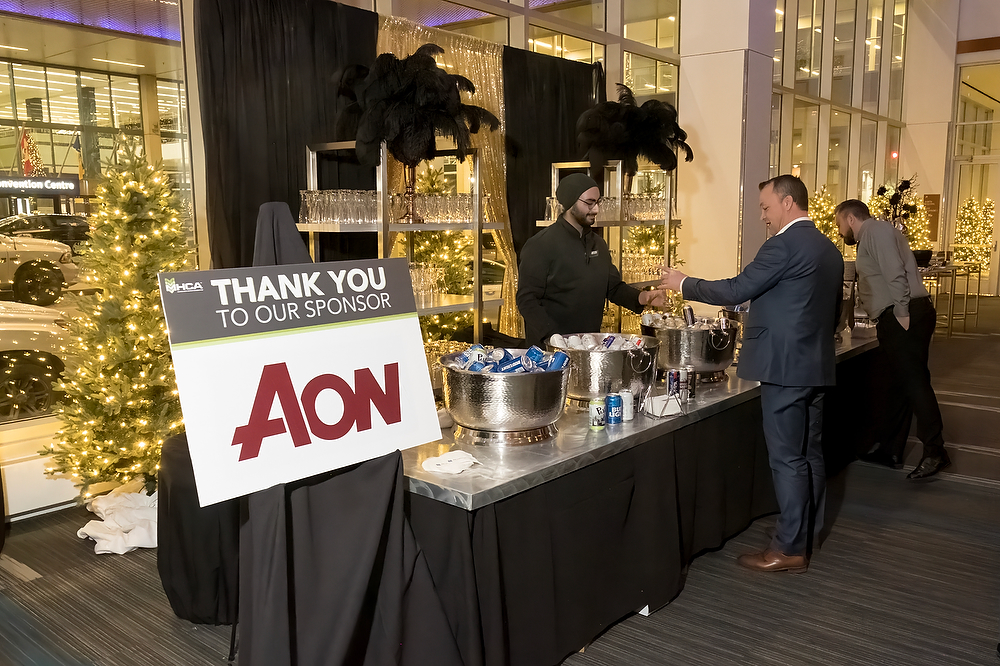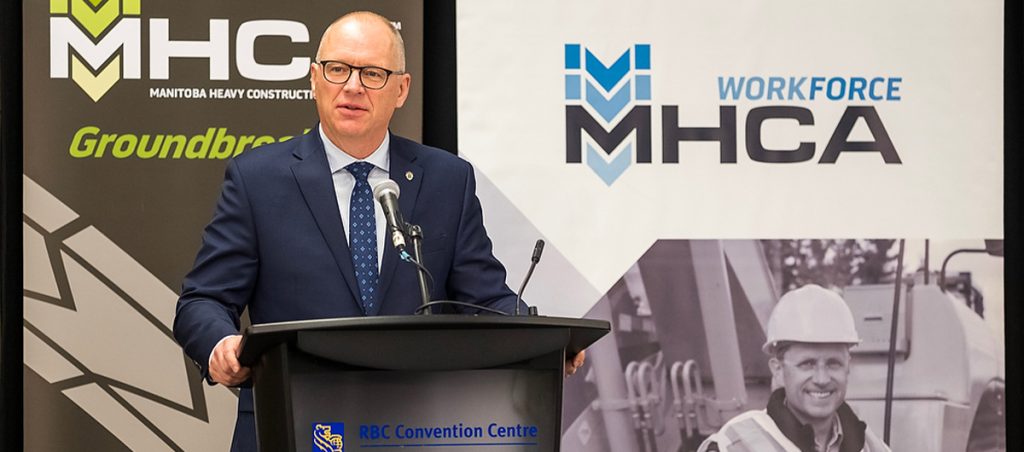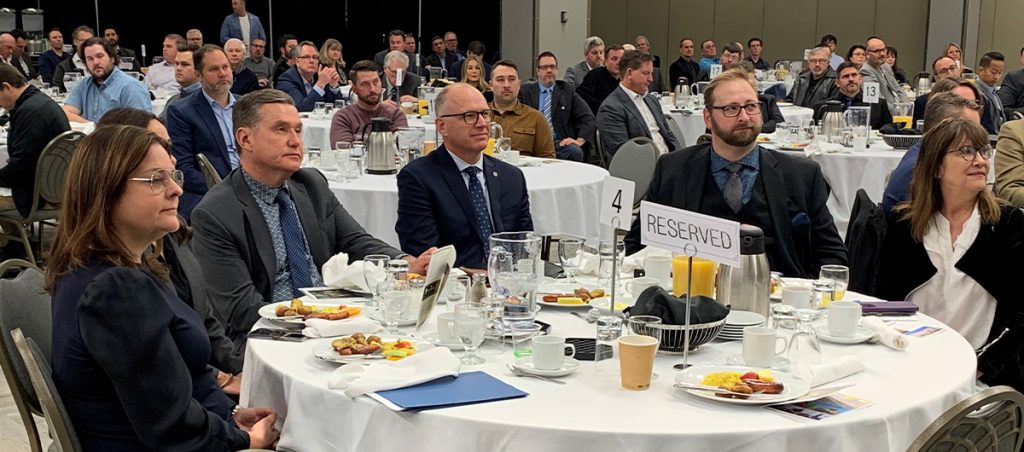Reconciliation demands rethinking the way business does business: Sinclair
Awareness of the history and the rights of Indigenous peoples in Canada is a basic first step in working towards reconciliation in your community, but it is also a business imperative.
This was the gist of a message in a discussion between the Hon. Murray Sinclair and his son, Dr. Niigaan Sinclair, at a May 19 Winnipeg Chamber luncheon called the Road to Reconciliation.
Murray Sinclair is a retired Senator, Manitoba Court of Queen’s Bench judge and has co-chaired a number of inquiries, including the Aboriginal Justice Inquiry and the National Truth and Reconciliation Commission.
The latter resulted in the publication of the 94 Calls to Action, which calls upon businesses, corporations, organizations and various public and private institutions to take actions internally relating to human resources and other policies, hiring practices, materials, awareness initiatives and the likes.
The elder Sinclair said businesses must review their corporate policies, which may not on the face of them seem discriminatory, as a critical step to uncovering and resolving unconscious bias within practices, which in turn is key to reconciliation.
Reconciliation requires rethinking common HR benefits, such as recognizing religious or other holidays, in which staff are permitted time off with pay.
Denying an employee the right to attend spiritual ceremonies, such as a sun dance, is inherently discriminatory because accommodating attendance at ceremonies is as valid as permitting time off for Christmas.
“The worst kind of racism is not where people set out to deliberately harm someone, it is unconscious racism,” he said, noting this happens when people follow long-standing policies and practices based on Western concepts.
“There’s no hesitation for employers to say ‘no, it’s not in our policies’.”
Niigaan Sinclair, an assistant professor and Head of the Department of Native Studies at the University of Manitoba and author, is working with the former judge to write a personal history of the latter’s life.
Murray Sinclair encountered frequent racism during his early years as a lawyer – which included an incident in which he was called to bail out a client in detention, only to be detained himself when he was seen as the accused.
He was made to feel unwelcome within his profession — and decided to leave law, for a time, to work on pursuits he enjoyed.
“I was a stranger to them, not just in the sense they didn’t know who I was but in the sense they didn’t think I belonged,” he said. He was rebuffed in his efforts to join colleagues who simply “wouldn’t make room for me at the table.”
An elder told him he needed to work in areas that brought him joy, because if he stayed in work that hurt him, he would begin to hurt others.
Finally, he was told to learn how to be Anishinaabe – in order to be a kind man again.
Today, there are thousands of Indigenous people working their way through post-secondary and other institutions to gain degrees, certifications, diplomas and are now working in businesses, corporations, professions and institutions.
That is important for business owners to understand, Murray Sinclair said, because the fastest growing small businesses are those owned by educated Indigenous people, many of whom are returning to their communities and setting up small mom-and-pop operations.
They are competing for the dollars being spent by Indigenous people, who again are the fastest growing populations.
The benefits of taking actions toward reconciliation are shared with all, he noted.
“You will benefit from the way you do business because it’ll enhance your relationship with Indigenous people. You will become better businesses but not only that you will become better humans, too, and that is key,” he said.
“Indigenous people want to do business with you” but if they don’t feel comfortable, they’ll do business with someone else.


